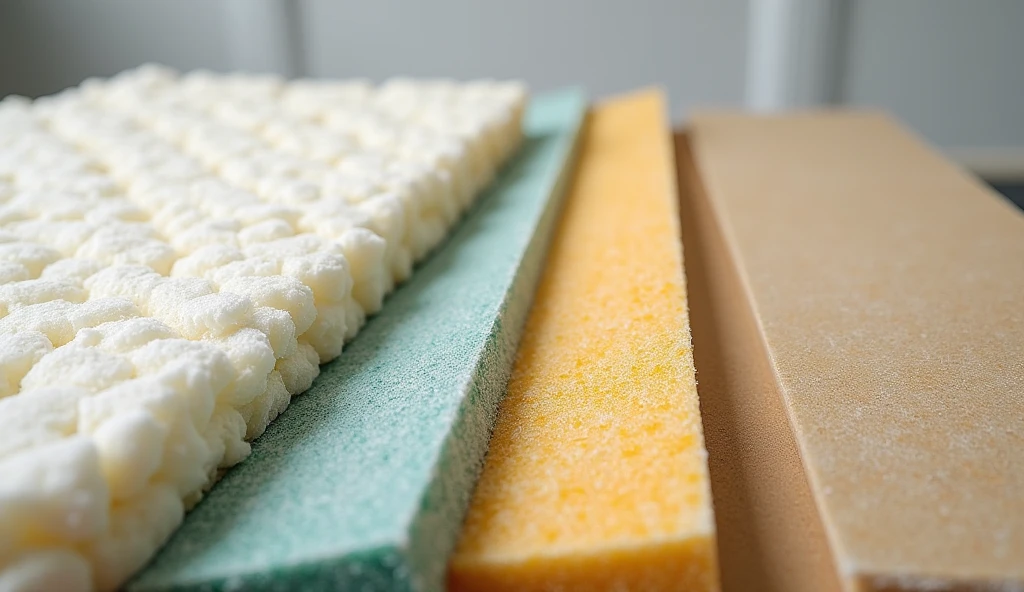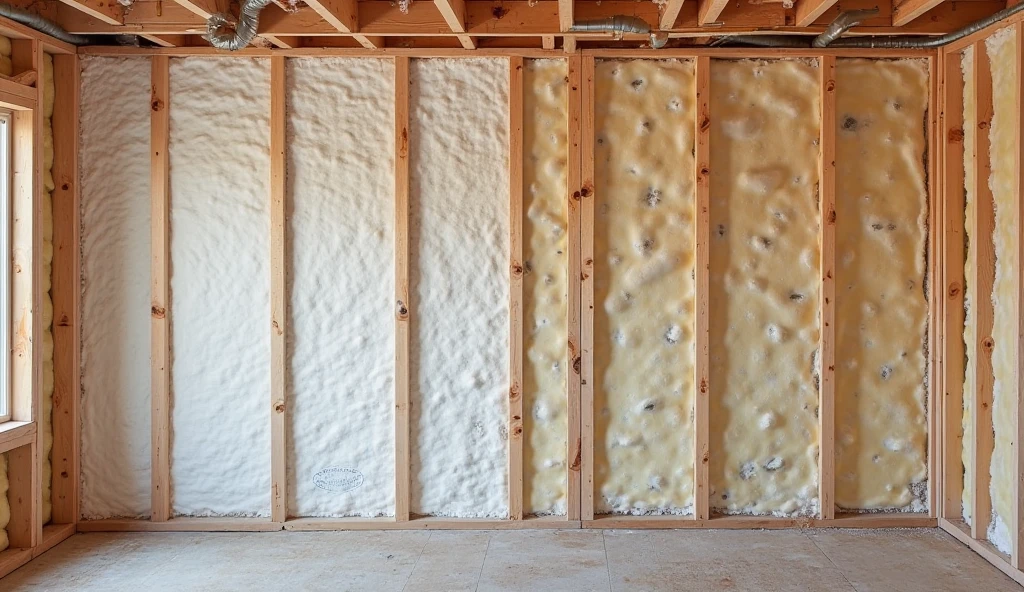When choosing an insulation supply company, it's crucial to evaluate their industry expertise and product range. Companies with years of experience often provide better product knowledge and customer service, directly impacting the efficiency of your projects. Assess the variety of insulation products offered, from traditional options like fiberglass to innovative solutions such as spray foam. An extensive range ensures that you can select the most suitable insulation for specific needs. Additionally, check if the company boasts certifications or partnerships with reputable manufacturers to secure high-quality and reliable products. This level of assurance is crucial to maintaining the integrity of your construction projects.

Understanding a company's delivery speed and service reliability is vital to ensure project timelines are met. Investigate their logistics capabilities to confirm whether they're equipped to provide timely delivery of insulation materials to your site. It's wise to review customer testimonials or reviews that speak to their punctuality and service quality. Reading these testimonials can offer insights into real-world experiences with their delivery schedules. Furthermore, it's important to be aware of their return policy and customer service offerings should delivery issues arise. Having a supportive system in place helps mitigate unforeseen delays effectively.
Compliance with building codes and standards is a non-negotiable aspect when selecting an insulation supply company. It's imperative to understand the specific local building codes your insulation products must meet to avoid potential project setbacks and fines. Ensure that the supplier regularly updates its products to align with new code requirements. Proactively verify documentation or proof of compliance from the supplier to ensure peace of mind and project integrity. This due diligence will not only avert compliance-related complications but also affirm the quality and legality of the materials you're implementing in your construction endeavors.
When comparing insulation options like spray foam and fiberglass, it's essential to understand their differences. Spray foam insulation offers a higher R-value per inch, which means better thermal resistance, while fiberglass insulation, available in batts and rolls, is often seen as more affordable. Installation also varies significantly: spray foam is applied as a liquid and expands to fill gaps completely, making it ideal for irregular spaces, whereas fiberglass is manually placed within walls and ceilings. However, fiberglass is more susceptible to moisture damage. While spray foam provides long-term energy savings, the initial cost is higher compared to fiberglass. Health and safety are critical aspects of installation; fiberglass may irritate skin and lungs, whereas spray foam requires professional installers due to the dangerous chemicals involved.
Mineral wool and rigid panels are becoming popular specialized insulation options, each offering unique advantages. Mineral wool, made from recycled steel and basalt rock, excels in soundproofing and fire resistance, making it an excellent choice for enhancing safety standards. Meanwhile, rigid panels provide superior structural strength and thermal performance, particularly in construction settings prone to moisture. They come in different thicknesses and R-values to suit various needs. Although the cost can be higher than traditional options, the benefits of energy efficiency and durability often offset the initial investment. When comparing mineral wool and rigid panels to traditional insulation like fiberglass, they usually outperform in water resistance and thermal properties, providing more efficient insulation solutions.
With growing awareness of environmental impacts, eco-friendly insulation materials are gaining prominence in sustainable building projects. Options like recycled denim and cellulose not only provide effective insulation but also help reduce the carbon footprint of buildings. These materials are biodegradable and typically made from recycled resources. The demand for green building practices is increasing, as sustainability goals become paramount for many developers. Insulation plays a critical role in achieving these goals by improving energy efficiency and reducing heat loss. For instance, case studies have shown that utilizing recyclable materials can significantly cut down on energy consumption and enhance indoor air quality. By integrating eco-friendly insulation, projects can align with contemporary environmental standards while meeting construction needs effectively.
Technical support and on-site training play a pivotal role in helping contractors optimize their insulation applications. Understanding product intricacies and installation techniques can significantly influence the effectiveness of insulation. Suppliers often offer training sessions tailored to equip contractors with the necessary skills to effectively apply insulation products. This assistance not only enhances the quality of the projects but also ensures compliance with safety standards. By receiving expert guidance, contractors can navigate complex insulation projects with confidence and precision, maximizing both efficiency and effectiveness.
Specialized equipment is crucial for insulation projects, and the option to rent rather than purchase can lead to substantial cost savings. Many top insulation suppliers offer equipment rental services alongside comprehensive maintenance programs to ensure ongoing performance and reliability. These programs include scheduled equipment checks and support to prolong the lifespan and efficiency of the machinery. When considering equipment rentals over purchases, factors like project duration, budget, and equipment usage frequency should be evaluated to make a cost-effective decision that also maintains operational capability.
Customized solutions allow insulation suppliers to tailor services that meet the distinctive requirements of commercial projects. The consultation process with experts is essential for developing insulation strategies that align with business objectives and specific configurations. Successful case studies of customized solutions demonstrate how this tailored approach can lead to improved energy efficiency, cost savings, and enhanced building performance. By working closely with insulation professionals, businesses can ensure that their insulation solutions are both economically and environmentally beneficial, meeting the precise demands of commercial settings.
Sourcing insulation supplies from local companies offers significant benefits regarding delivery times. Local suppliers can provide faster deliveries, ensuring projects proceed smoothly without unnecessary delays. Timely delivery is crucial because longer delivery times can disrupt project schedules and increase costs, causing financial strain. Moreover, local suppliers have the advantage of responding swiftly to urgent needs or changes at the job site, offering flexibility and adaptability that distant suppliers might lack.

Finding insulation supply companies in your vicinity is crucial, and leveraging online directories and reviews can facilitate this process. When assessing reliability, consider factors like customer ratings, experience, and service range. Building relationships with local suppliers can enhance support and availability, enabling personalized services and long-term business benefits. Establishing strong connections ensures consistent access to quality materials and expert guidance whenever required.
When undertaking insulation projects in North Atlanta, understanding specific building codes and climate considerations is vital. Collaborating with suppliers familiar with local conditions and regulations can prevent compliance issues and optimize project outcomes. North Atlanta presents unique insulation challenges due to its varied weather patterns, and local suppliers possess the regional expertise needed to address these effectively. They can tailor solutions that meet regulatory requirements and adapt to environmental demands, ensuring optimal insulation performance.
Q: What types of insulation products should I consider for my project?
A: The choice depends on your needs. Options include fiberglass, spray foam, mineral wool, rigid panels, and eco-friendly materials like recycled denim. Each type offers different advantages like cost, thermal resistance, and moisture protection.
Q: Why is compliance with local building codes important?
A: Compliance ensures that the insulation meets safety and performance standards, avoiding project setbacks and legal issues. Always check for proof of compliance from your supplier.
Q: How can I ensure timely delivery of insulation materials?
A: Choosing local suppliers with strong logistics capabilities can lead to quicker deliveries. It's beneficial to review customer testimonials to gauge their delivery reliability and responsiveness.
Q: Are eco-friendly insulation options effective?
A: Yes, eco-friendly options like cellulose and recycled denim are effective and help reduce the carbon footprint. They offer adequate insulation performance and contribute to sustainability goals.